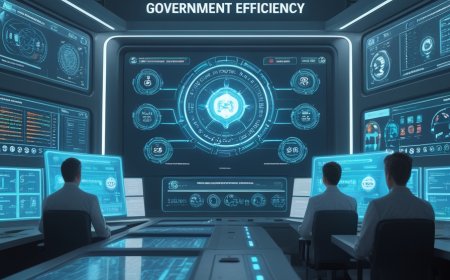Trump’s astonishingly wrongheaded notions about trade and tariffs
President Trump's obsession with the U.S. trade deficit is misplaced, as trade balances don't matter and tariffs are a tax increase on U.S. businesses, which could lead to higher prices and potentially boost inflation, making it harder for the Federal Reserve to lower interest rates.

President Trump has been right about many things. But when it comes to tariffs, he’s wrong about nearly everything. And not just a little wrong, he’s astonishingly wrong. And the great mystery is he has several good economists around him who know he’s wrong and surely have tried to explain it to him — apparently to no avail.
But if he would listen to them, here’s what they would tell him.
Trade balances don’t matter. Trump has long been obsessed with the U.S. trade deficit. Most economists aren’t. For decades the U.S. has bought more from other countries than other countries have bought from us, which means we always have an annual trade deficit. According to the Census Bureau, the U.S. trade deficit was $436 billion in 2000, $635 billion in 2010, and $1.06 trillion in 2023. About the only time the trade deficit goes down is when people have less money to spend because the country is in an economic recession.
But doesn’t that mean other countries (e.g., China) are “winning,” as Trump says, while the U.S. is losing? No, and to understand why, consider a household. Your household may have lots of trade deficits: with the grocery store, gas station, department stores, pharmacy and restaurants. You buy from them, but they don’t buy from you. Do you consider yourself losing? That system works because your household produces enough wealth (i.e., income) to pay those bills. And when you make more money, you’re likely to spend even more, increasing your trade deficits.
Countries are no different. The U.S. is the wealthiest country in the world. Our gross domestic product — the sum of all goods and services produced in the U.S. — goes up every year except in recessions. GDP was about $10.5 trillion in 2000, $15.3 trillion in 2010, and nearly $30 trillion in 2024. The U.S. — i.e., companies and individuals — creates wealth and we spend it on things we want and need, just like your household.
Incidentally, some states likely have trade deficits or trade surpluses with other states, but you never hear about that because nobody cares.
Americans, not foreign countries, pay the tariffs. It is a mystery why Trump keeps claiming other countries pay our tariffs. The New York Times writes, “Many U.S. companies have expressed frustration with Mr. Trump’s frequent assertions that foreign countries pay for tariffs.” He couldn’t be more wrong. A tariff is a tax the U.S. imposes on imports to the U.S., and U.S. consumers and companies pay those tariffs when the products arrive at customs.
Here’s the Tax Foundation: “When the US imposes tariffs on imports, US businesses directly pay import taxes to the US government on their purchases from abroad.” Got that? Tariffs are a tax increase on U.S. businesses. Those increases are often passed on to consumers, meaning they will pay higher prices. In short, Donald Trump is raising your taxes.
That’s why Democratic presidential candidate Kamala Harris equated Trump’s proposed tariffs to a sales tax. They work the same. Consumers will pay more.
Sometimes a foreign company will reduce its prices to partially offset the tariff. And sometimes U.S. companies importing those goods or services will eat part or all the additional costs, reducing profits. But consumers will see many prices rise.
And that’s why you’ve likely seen news stories suggesting Trump’s tariffs could boost inflation. Some prices will go up, which may persuade the Federal Reserve Bank to not lower interest rates — or maybe even raise them.
Don’t miss the irony. Trump wants the Fed to cut interest rates even as he imposes tariffs that could keep prices higher than otherwise, which would prevent the Fed from lowering interest rates.
Tariffs won’t replace other taxes. Trump likes to point out that tariffs were the primary source of government revenue in the 1800s. But, of course, this isn’t the 1800s.
According to the Congressional Research Service, “Over the past 70 years, tariffs have never accounted for much more than 2% of total federal revenue.” Tariffs brought in only $77 billion, or 1.57 percent of total revenue, in 2024. More importantly, that’s only 1.14 percent of total 2024 federal spending of $6.75 trillion.
Trump has flirted with the notion, whether seriously or not, that tariff revenue might replace other taxes like the income tax. But federal revenue from the individual income tax was $2.43 trillion in 2024 — about 32 times the $77 billion the government received in tariffs. Even with significant spending cuts and increased tariff revenue, tariffs will be only a small fraction of the needed federal revenue.
The White House and Trump can expect to hear complaints from the thousands of U.S. businesses that will have to pay Trump’s tariffs, the thousands of U.S. businesses hit by retaliatory tariffs imposed by Canada, Mexico and China, and from investors who see their assets tank as the stock market understandably prices in lower economic growth — or even a recession.
The best solution is for Trump to claim his targeted countries have made concessions, however minor, and end this trade war. And maybe he will. Because the last thing he wants is to be the one to Make America Poor Again.
Merrill Matthews is a public policy and political analyst and the co-author of “On the Edge: America Faces the Entitlements Cliff.”
What's Your Reaction?








































